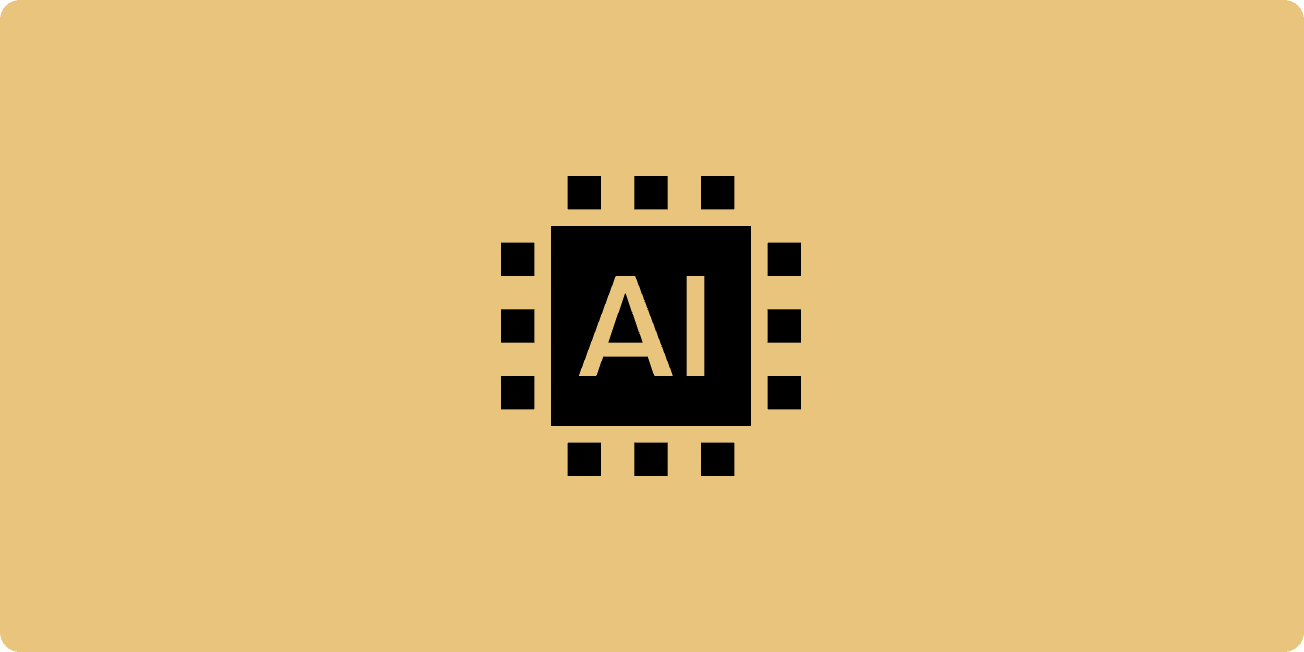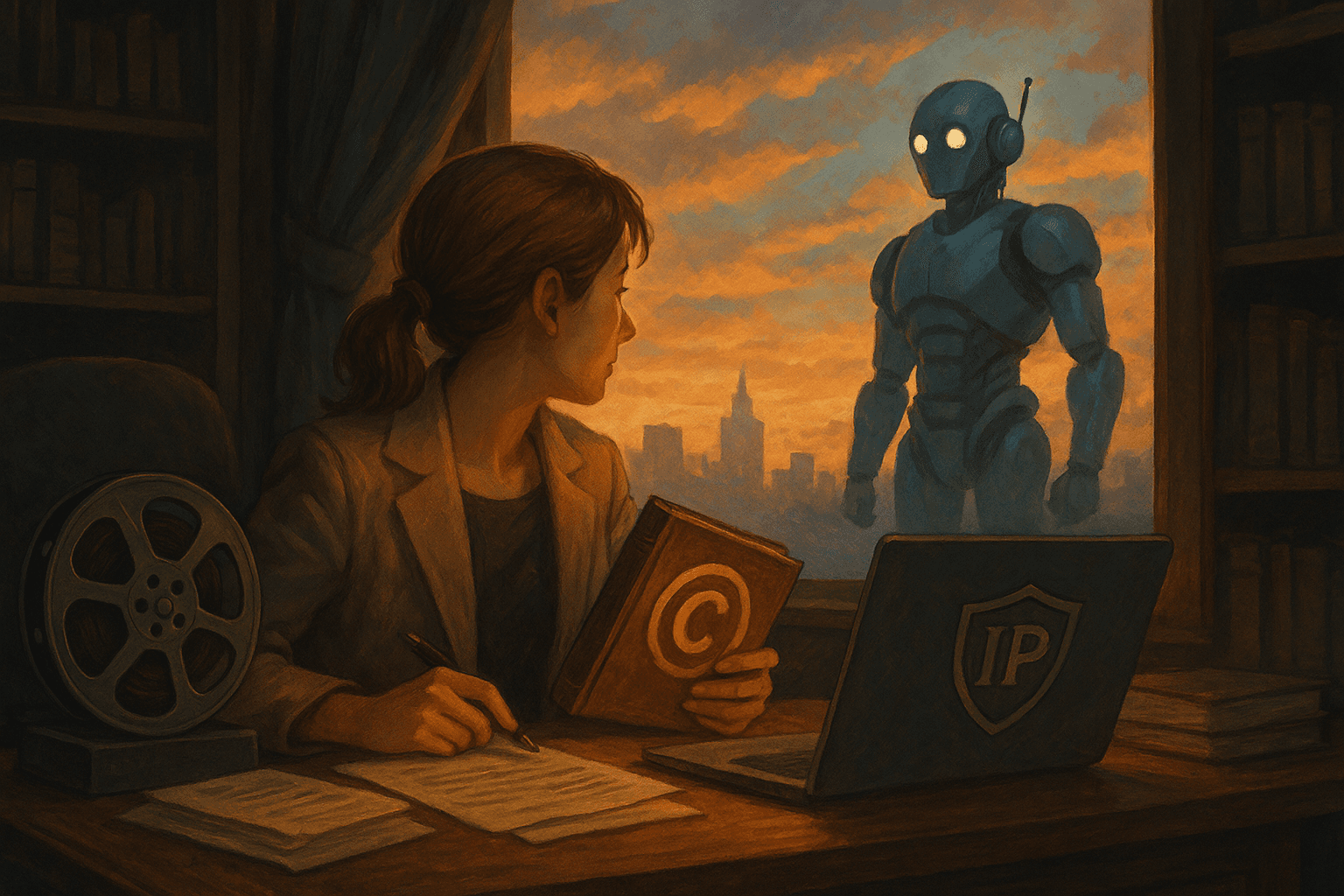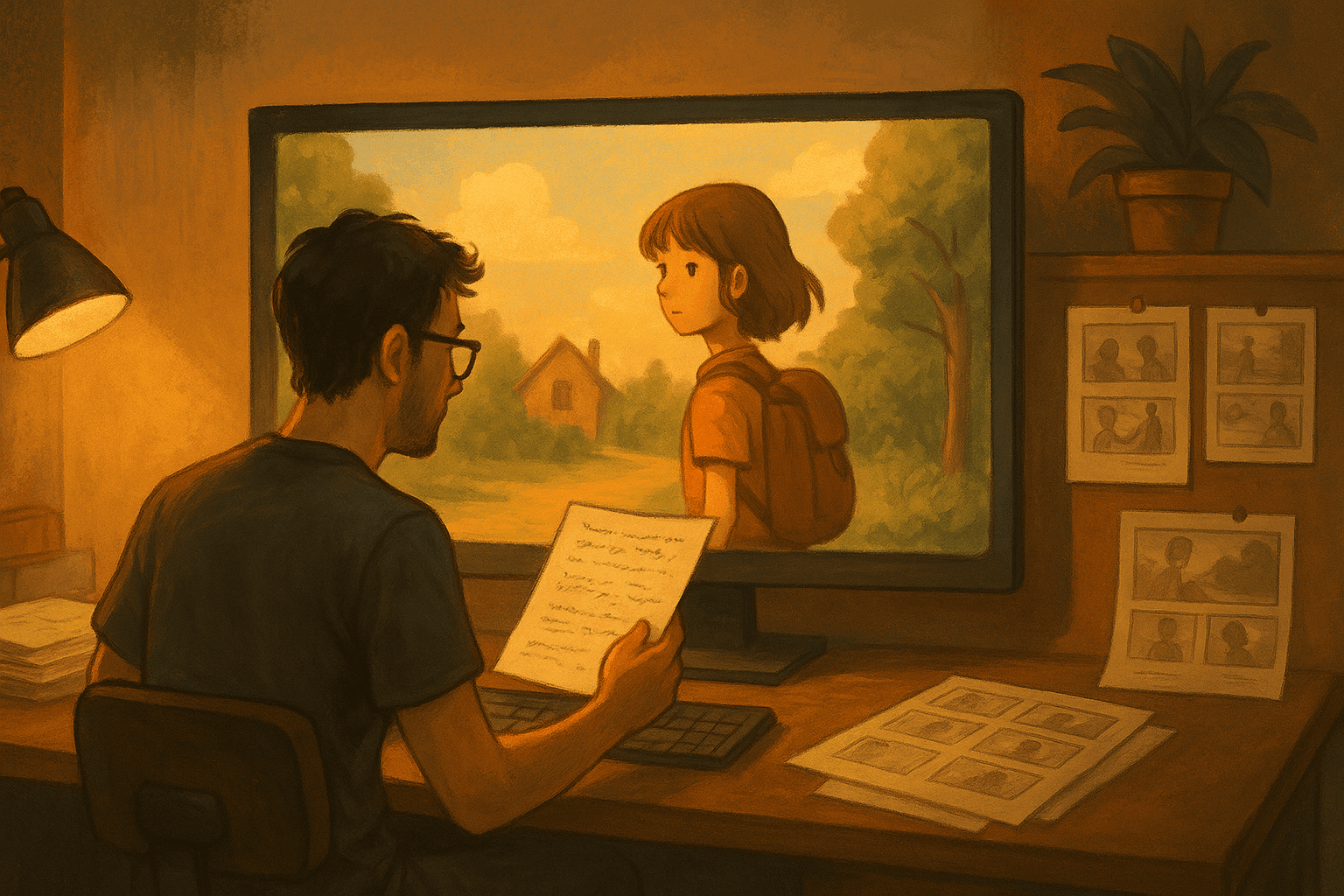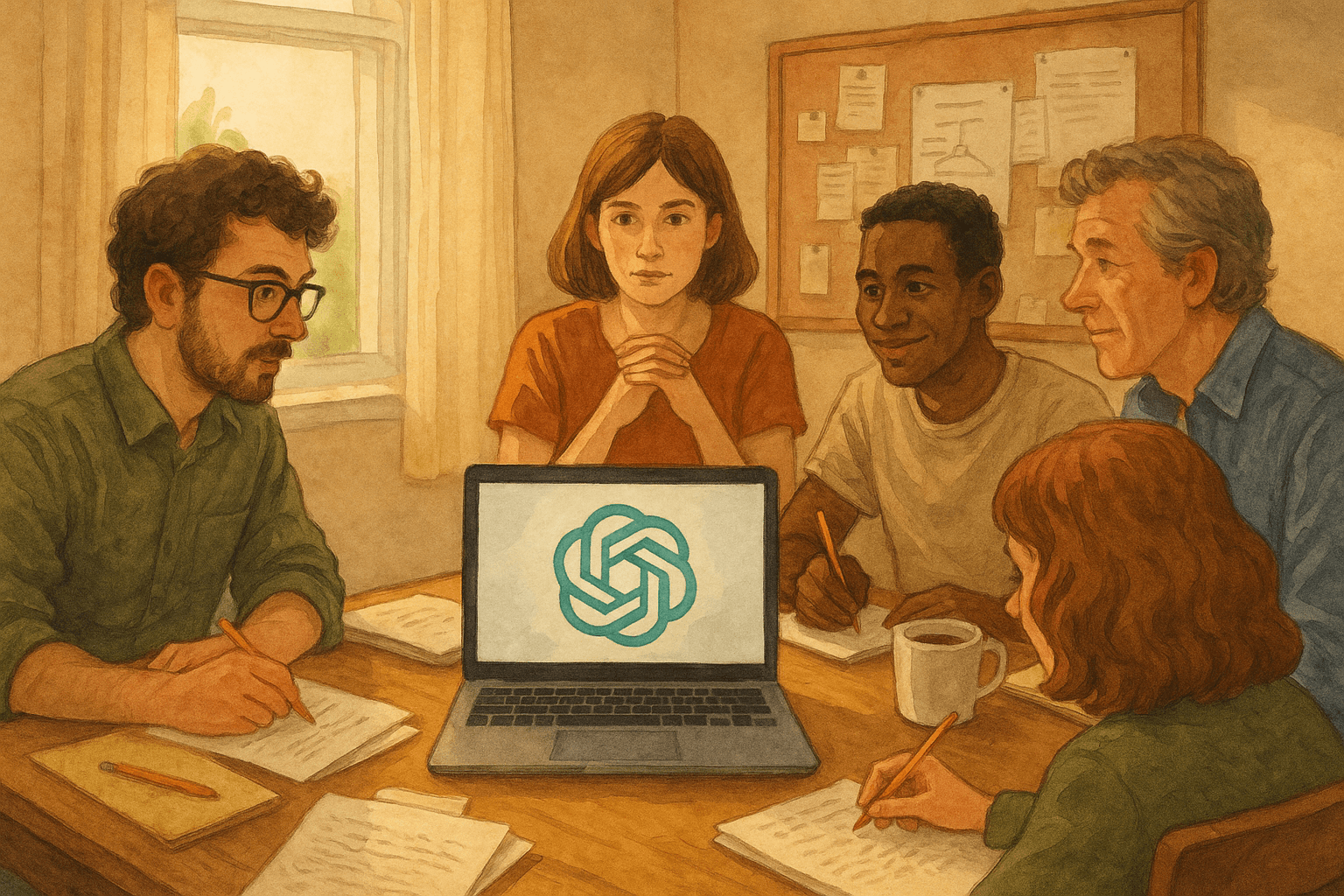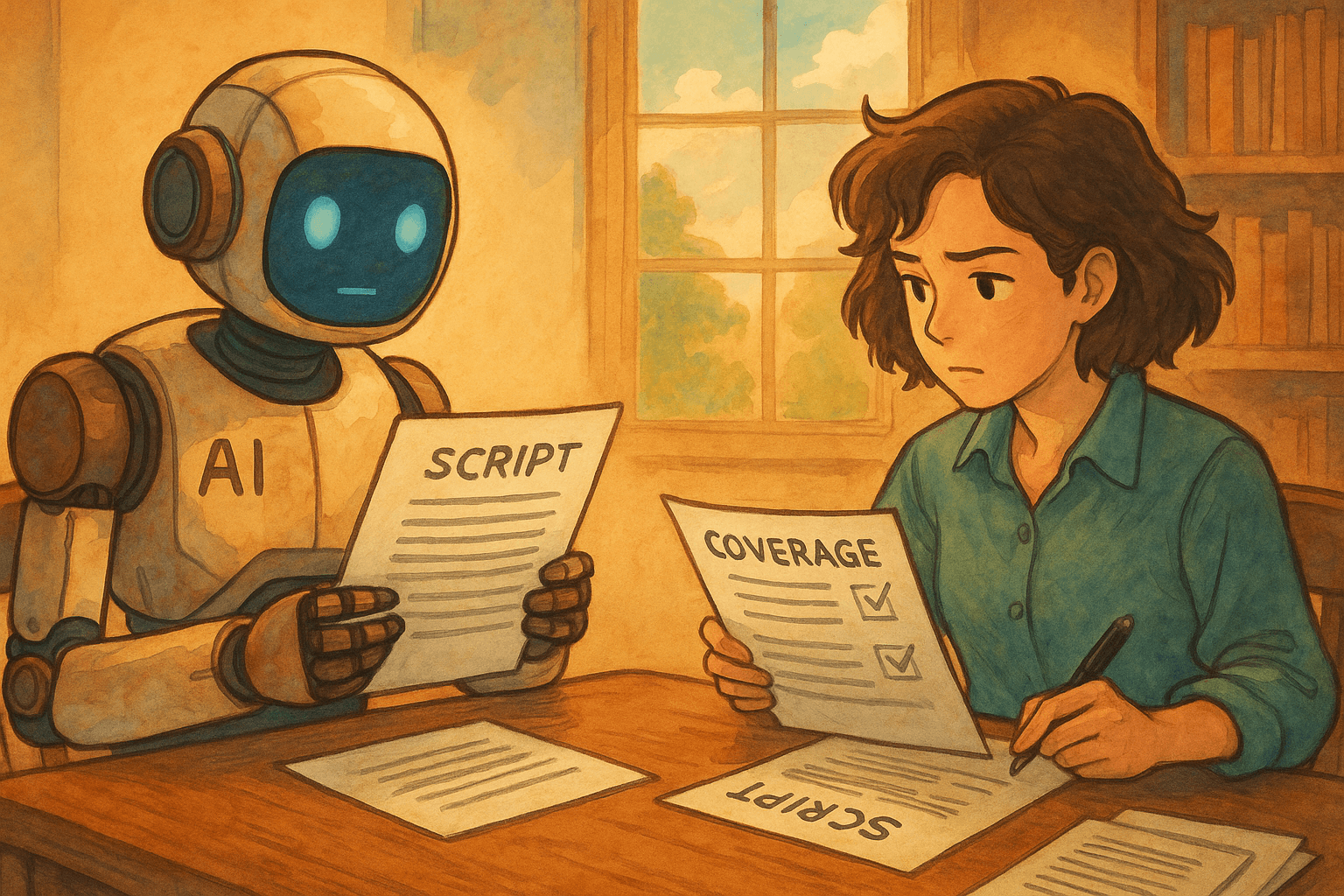Let's start with full transparency: I'm a co-founder of a startup that makes AI tools for film and TV development. That puts me in a unique, and admittedly conflicted, position in the ongoing debate about AI in the entertainment industry.
On one hand, I'm deeply invested in the potential of AI to enhance storytelling. On the other, I'm acutely aware of the fears and resistance within the industry. I've heard the concerns: "We don't want AI films." But what exactly is an AI film? And more fundamentally, what defines a film in the first place? These questions are at the core of why I'm writing this. I believe we need to have an honest conversation about what AI means for storytelling, free from both blind techno-optimism and reflexive fear.
New technology always seems to provoke fear in artists. When photography was invented, painters thought it would make their work obsolete. The same happened with digital tools in animation and synthesizers in music. But these fears always turn out to be unfounded.
What really happens is that new technology expands the range of what's possible. Photography didn't replace painting; it became its own art form and even inspired new styles of painting. Digital tools didn't kill animation; they allowed for new types of animated films. Synthesizers didn't put musicians out of work; they created new genres of music.
Today, everyone has a camera in their pocket that would have seemed magical to those early painters. But we're not all great photographers. The same goes for digital art tools and music production software. Having the tools doesn't make you an artist.
There's something intangible in great art that transcends the medium. You know it when you see it, even if you can't explain why. A powerful photograph moves us not because it's a photograph, but because of what the photographer saw and captured.
The lesson here isn't that technology threatens art. It's that technology gives artists new ways to express their vision. The vision itself — that's still uniquely human.
I recently read a tweet by Kyle Brett, a creative exec at Blumhouse, about what makes a script "undeniable." Among his criteria, one stands out: "The screenwriter clearly has some brilliant insight about humanity and is using the script to tell a story about it." This encapsulates the essence of storytelling across all mediums - it's about revealing some truth, some "incredible secret" about what it means to be human. This is what separates a mundane recounting of events from a story that captivates and moves us.
In June, I had a chance encounter with Whoopi Goldberg at the Tribeca Film Festival. We got to chatting about AI, and she surprised me by saying, "AI is nothing new in the industry. It's been here for 25 years." She's right. AI has been quietly shaping filmmaking for years, often in ways we overlook. It's there in camera software adjusting focus and lighting, in microphones isolating dialogue from background noise, and in post-production suites creating once-impossible worlds. These AI-powered tools have become so seamlessly integrated that we rarely think about them as "artificial intelligence."
These AI-enhanced tools have democratized filmmaking, enabling indie creators to achieve effects once reserved for big-budget productions. They've also given established directors new ways to push creative boundaries. But here's the crucial point: none of these tools are telling the story. They're simply helping to capture and shape it. The story itself - that brilliant insight about humanity - still comes from the human mind and heart.
Consider Refik Anadol, who uses machine learning algorithms to create mesmerizing data sculptures and installations. His work blends technology and art in ways early photographers could never have imagined, challenging our perception of what art can be. This echoes how early photography disrupted traditional notions of art, pushing the boundaries of creative expression.
We're at a similar crossroads with film and AI. New tools are emerging that could help more people bring their stories to life. If technology exists that makes storytelling more accessible, shouldn't we embrace it? After all, the goal is to share those "incredible secrets" about what it means to be human.
By embracing these tools, we're not replacing human creativity - we're amplifying it. We're opening doors for voices that might otherwise go unheard, broadening our collective understanding of the human experience.
If AI can help more people express their unique insights about humanity, how might it change the way we tell stories? We're already seeing AI tools help screenwriters brainstorm ideas and overcome creative blocks. These tools aren't replacing human creativity, but opening new avenues for exploration. AI is also revealing subtle narrative patterns we hadn't consciously recognized, offering fresh perspectives on story structure and character development.
The painters who initially dismissed photography couldn't have foreseen its impact. Beyond establishing itself as a distinct artistic medium, photography ended up profoundly changing how painters worked, from more accurate depictions of motion (google "horse painting before photography") to inspiring new movements like Impressionism.
The key is to keep questioning, exploring, and remaining open to both the possibilities and challenges ahead. The future of filmmaking with AI isn't about replacing human creativity, but about unlocking new ways to express it. As we embrace these tools, we may find ourselves telling stories that reveal even more profound truths about the human experience, in ways we've yet to imagine. The question now is: are we ready to pick up these new tools and start creating?
